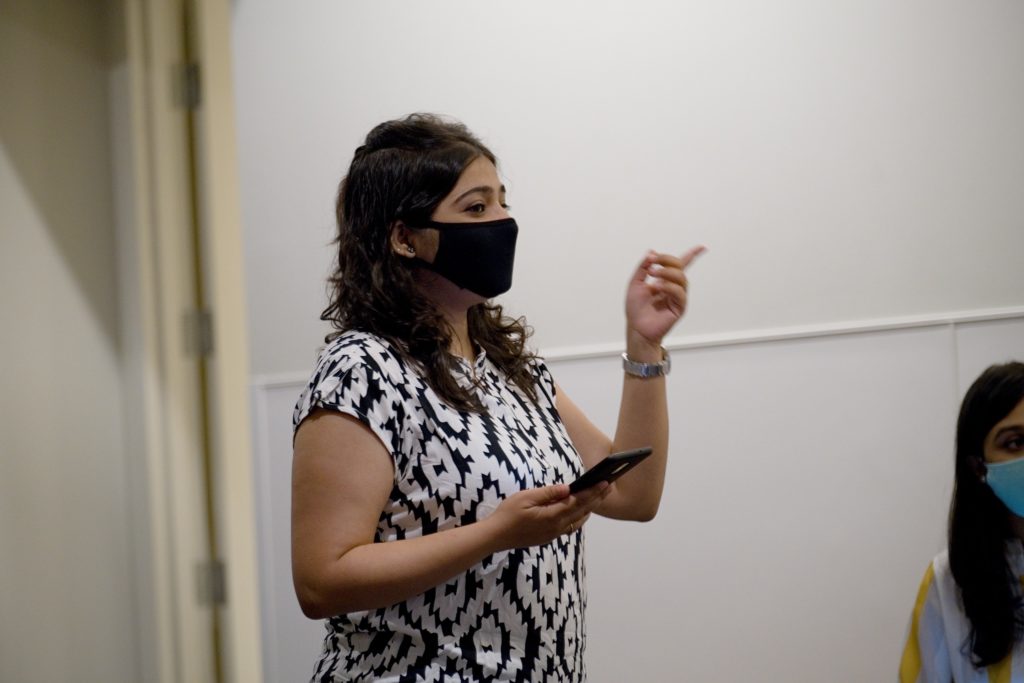Financial Times MBA rankings demonstrate Foster’s enduring program quality
The Financial Times 2021 Global MBA Rankings rate business schools’ success in alumni career outcomes, faculty research, gender diversity, and alumni satisfaction—all measures where the UW Foster School performs well among the world’s top universities. The Foster Full-time MBA Program placed #28 in the world (and #15 in the nation), moving 19 spots up the ranking. While it should be noted that 7 top-ranked schools declined to participate in FT’s ranking this year, this result is still a very strong indicator of program quality.
#1 MBA employment among top US programs, strong career results across the board
For the fourth year in a row, Foster ranked #1 among top 30 U.S. business schools for employment, with 94% of the class of 2020 employed three months after graduation. Foster MBA alumni surveyed secured positions primarily in technology, consulting and financial services, reporting an average salary of $146,566. Critical to this success are Foster’s deep relationships with employers, recruiters and alumni, leveraged by students with the guidance and assistance of Foster’s MBA Career Management team.

These results demonstrate that employers continue to hold Foster MBAs in high regard. “Employers continually tell us that Foster students are imaginative, curious, innovative and collaborative leaders,” says Naomi Sanchez, Assistant Dean, MBA Career Management. “It’s all about our students creating impact in business and communities, and the ability to solve problems and deal with ambiguity.”
Top public university in the world for research creates a premiere learning experience
The Financial Times’ research ranking puts Foster at #4 in the world and #3 in the U.S. Foster faculty published more articles in 50 top academic journals per capita than their counterparts at UC Berkeley, Michigan, Northwestern, and Yale. Studying with some of the world’s top scholars resulted in students’ engagement with the most current thinking in finance, entrepreneurship, accounting, marketing, management, and analytics, which students then apply to practice.
“In addition to smaller class sizes—which greatly personalize the learning experience—Foster’s connections to the business community lead to ample opportunities for applied learning projects, mentorship, internships, and ultimately, jobs,” said Josh Rodriguez (MBA ’17), an Advisor at Goldman Sachs. “Did Foster help me achieve my aims? Absolutely – I pivoted from a career as a Reconnaissance Troop Commander in the Army to private wealth advising ultra-high net worth families, athletes, and foundations at one of the world’s premier financial institutions. That doesn’t just happen without a major assist from an institution like Foster.”
A connected, diverse community with satisfied alumni
Foster ranked #4 for percentage of female faculty, #16 for percentage of female students, and #18 for percentage of women on the advisory board among the top 30 schools. Foster Dean Frank Hodge has made strong commitments to inclusion and diversity, with a continued focus on hiring practices, and strategic admissions partnerships (e.g., The Forte’ Foundation and The Consortium). Foster also offers both an executive speaker series course for MBAs–”Women at the Top”–and an Executive Education Seminar called “Women on Boards” that was born out of faculty research, aimed at closing the gender gap in executive boardrooms.

Perhaps most importantly, alumni report the 5th highest rating of overall satisfaction among the top 30 schools. While satisfaction is not a weighted criterion in FT’s ranking, it is important to note that 61% of the ranking is informed by alumni responses (50% from the class of 2017, 25% each from the classes of 2016 and 2015). When you combine a great learning experience, a tight-knit collaborative community, and supportive alumni, with some creativity and innovation, you generate a transformational experience with lasting value.
“The satisfaction of our alumni, considered in the context of their strong career outcomes from key positions in critical industries, indicates that we are on target with regards to our purpose of fostering leaders,” said Wendy Guild, Assistant Dean of MBA Programs. “Foster MBAs are collaborative leaders making a positive impact on our economy and communities.”
